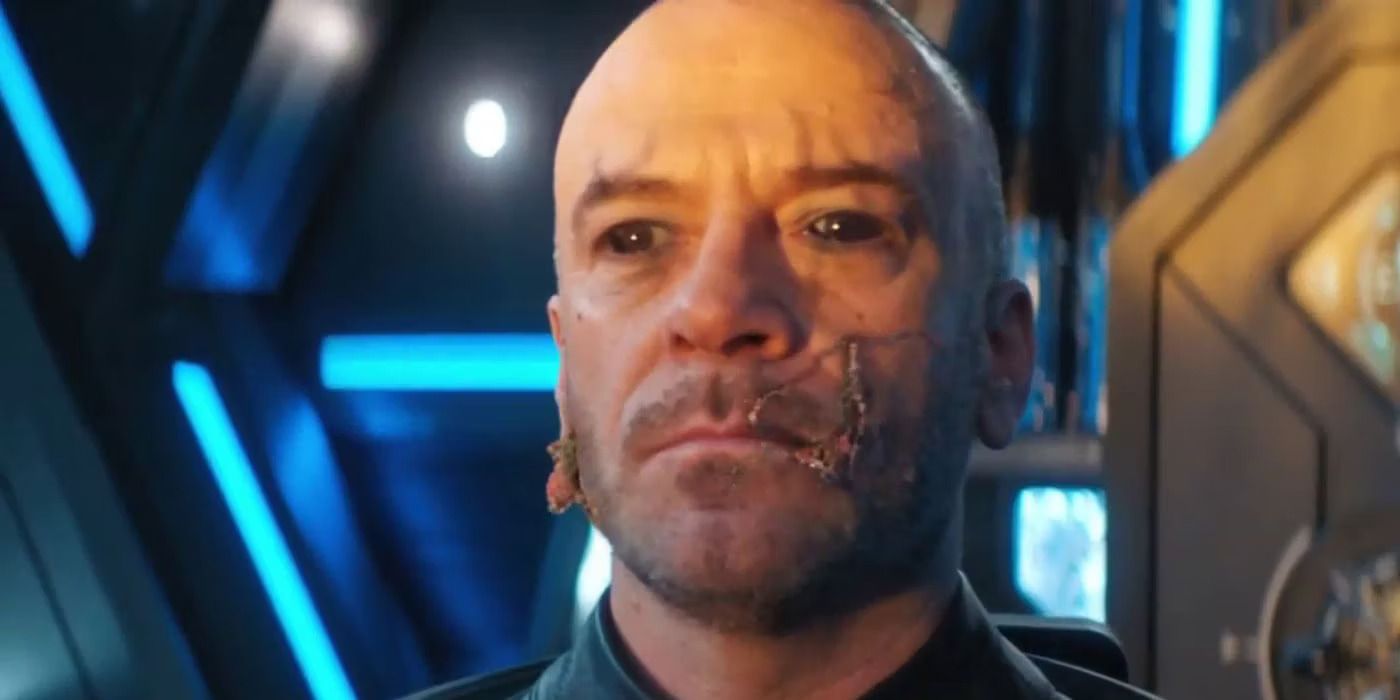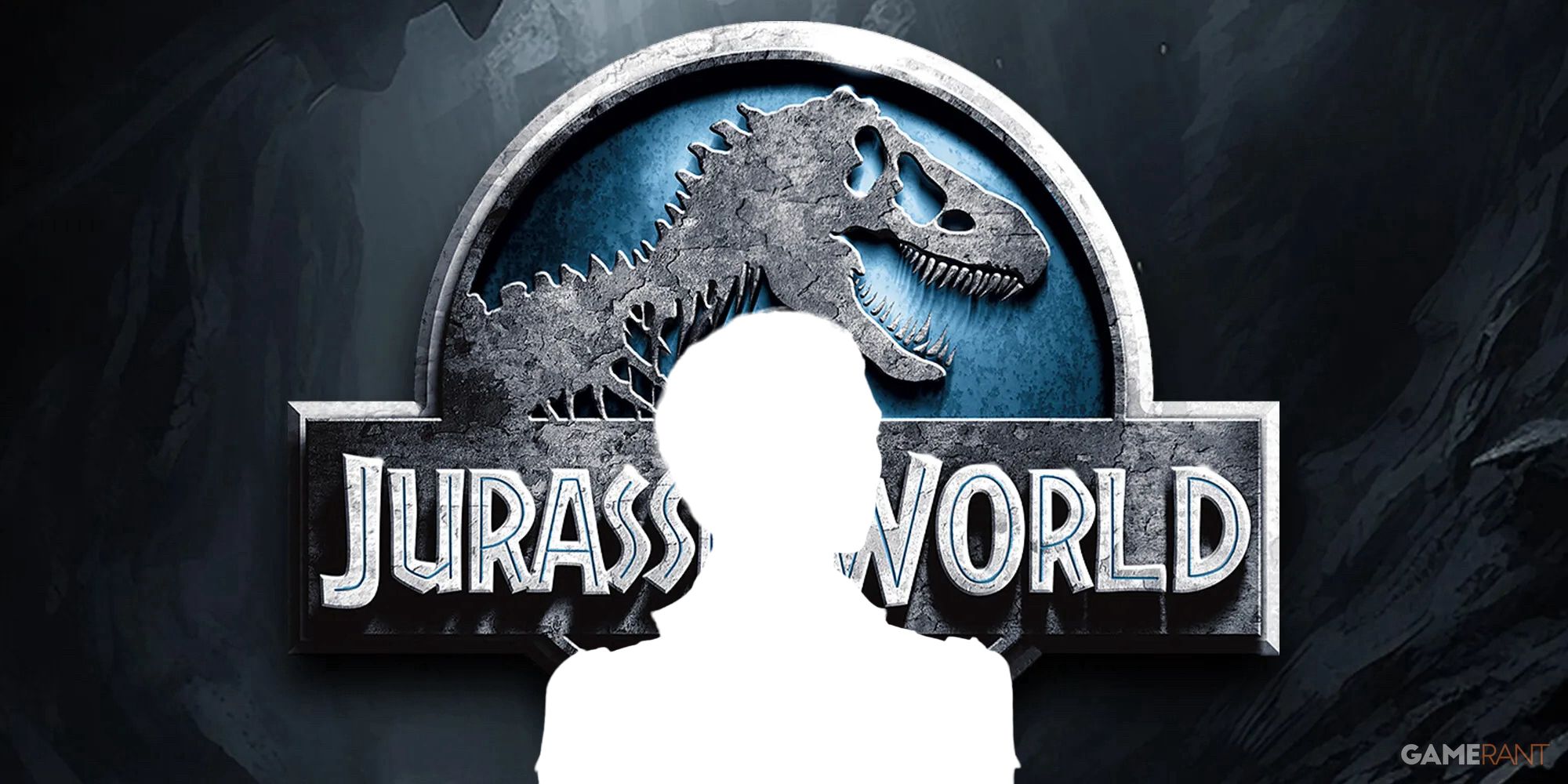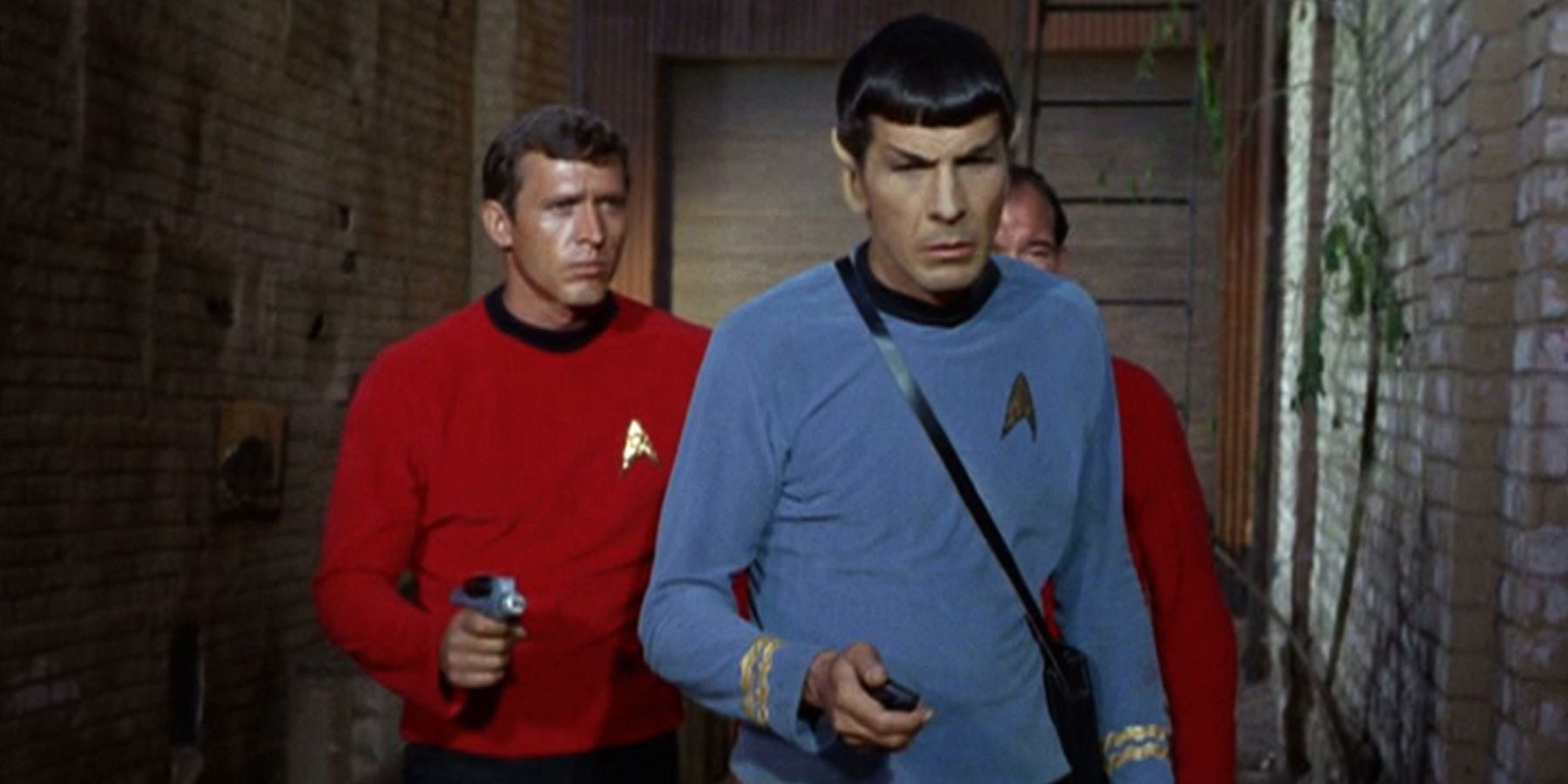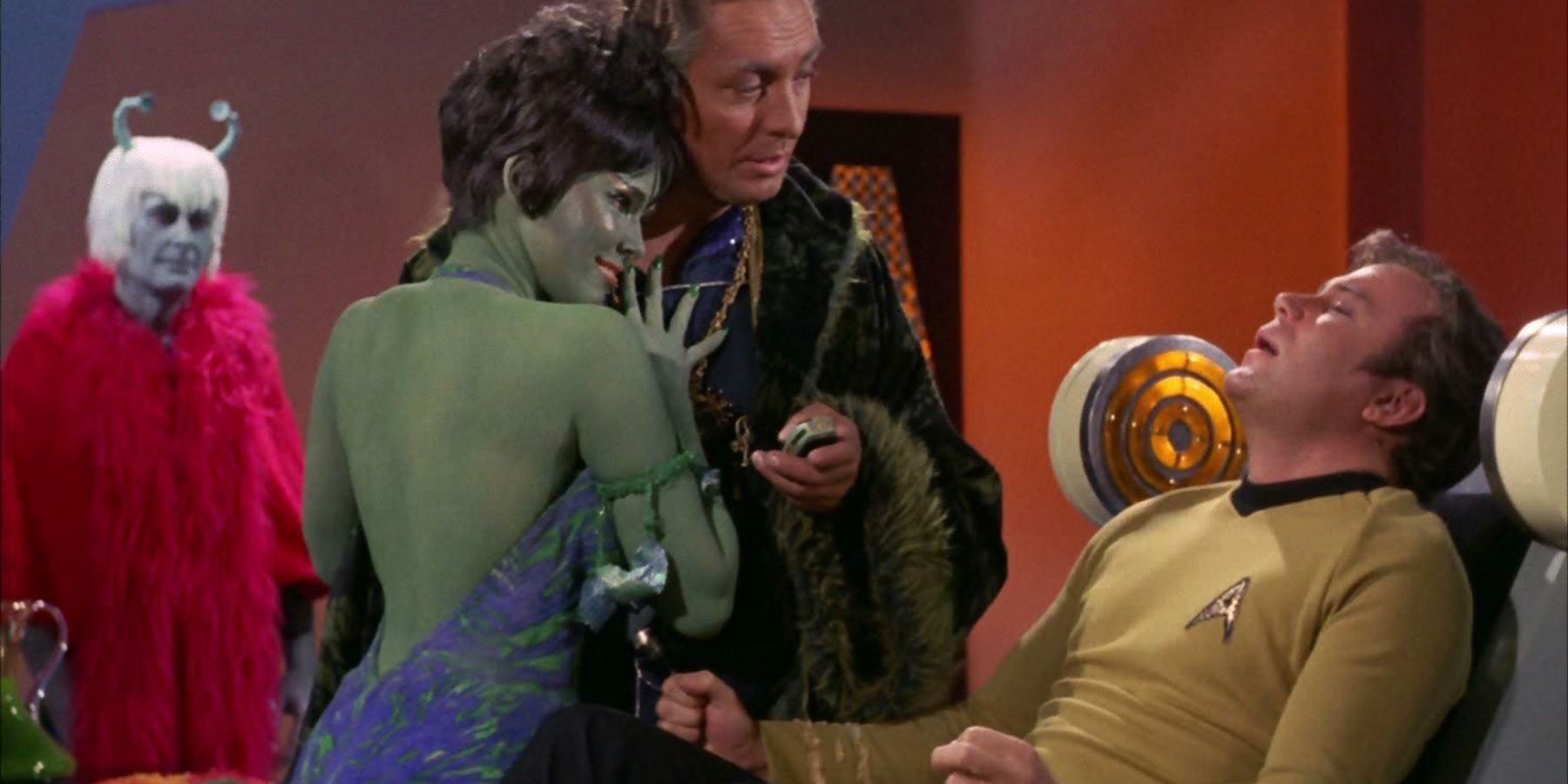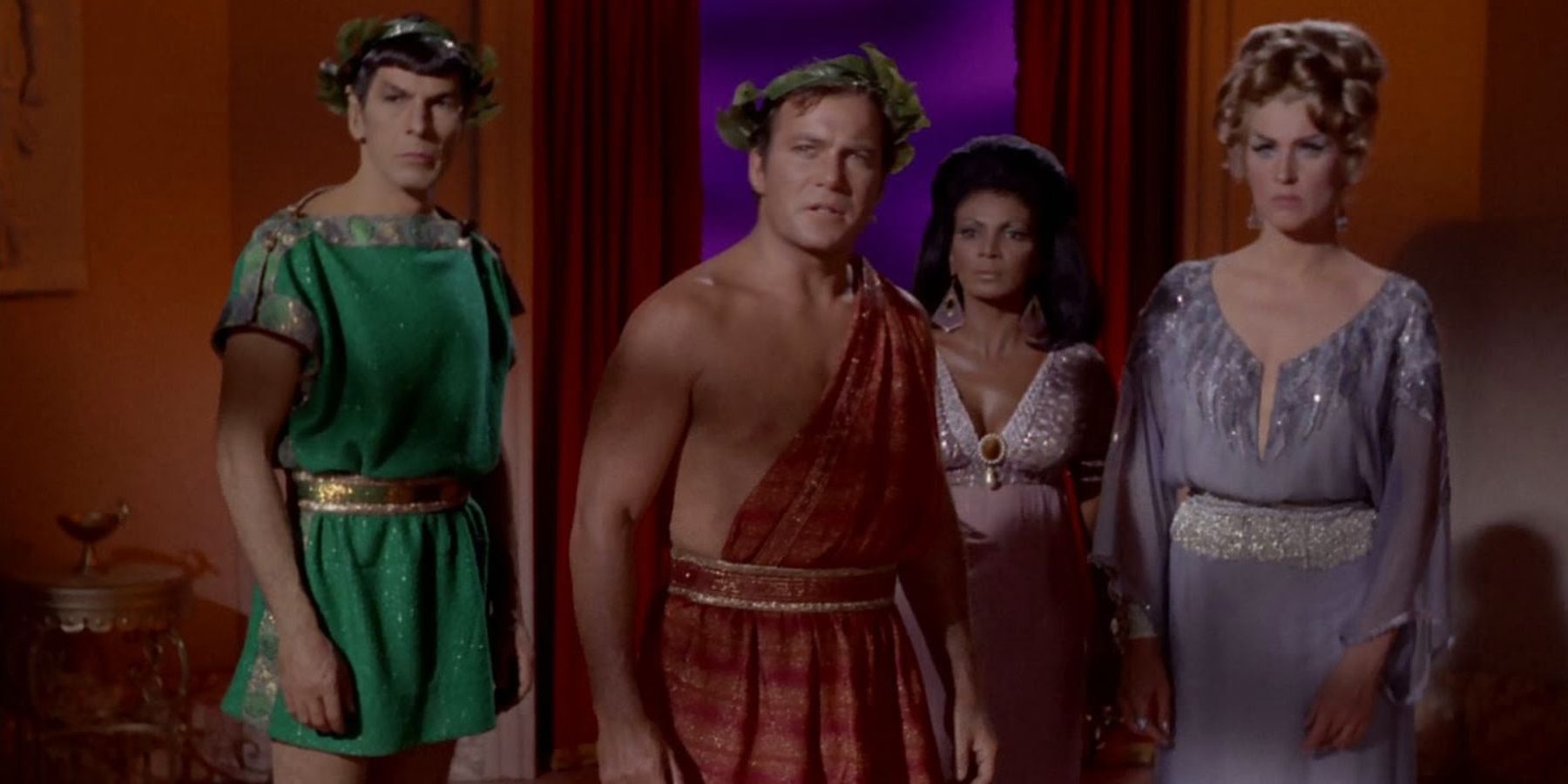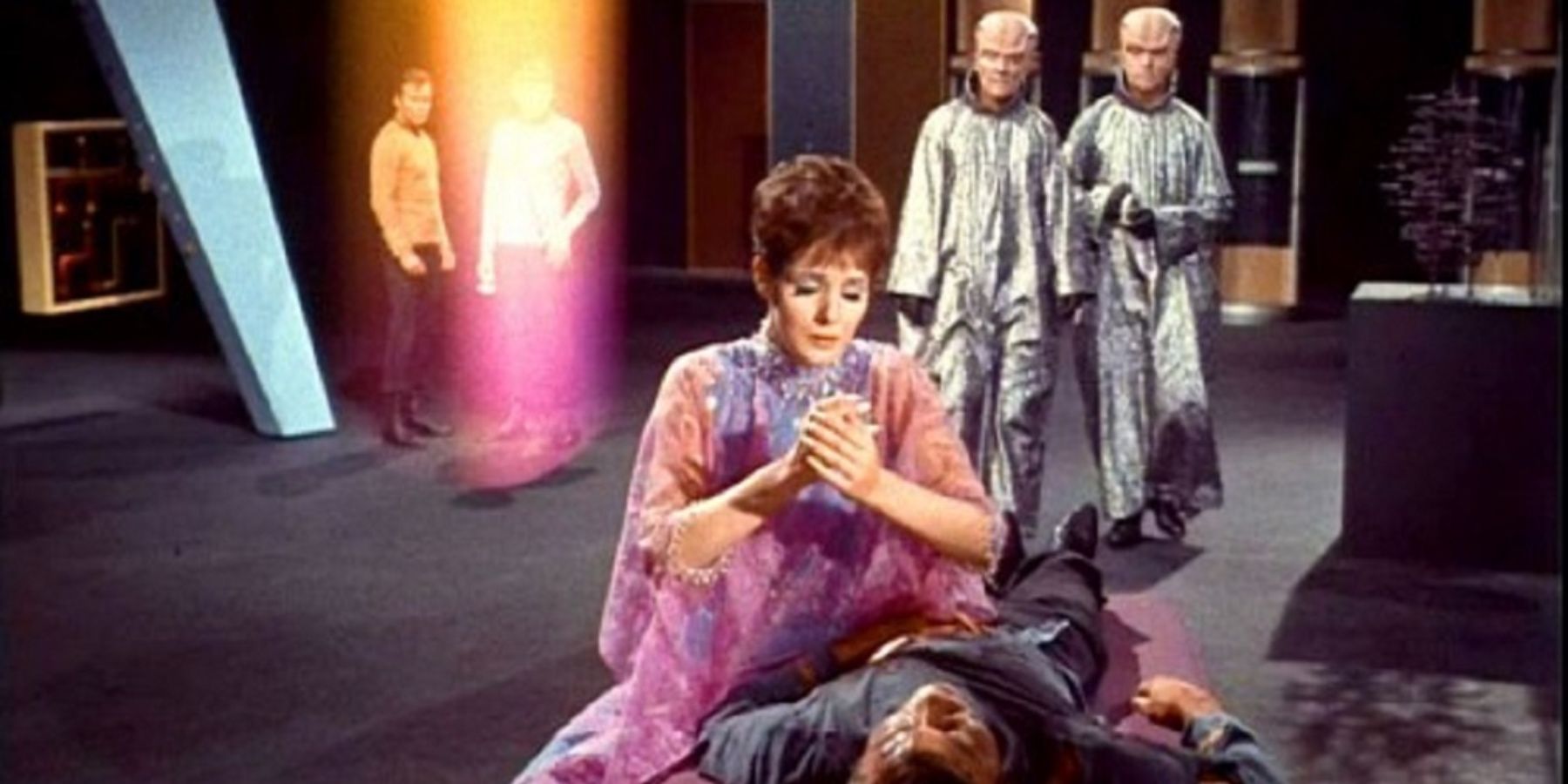Star Trek is one of the most popular sci-fi franchises in the world alongside Star Wars, spanning several movies and television series. The original TV show in the late 1960s ran for three seasons, but there were four episodes that were banned in the UK for some time.
As writer Stephen Bell states in his essay,Star Trek is primarily an adult program that’s not necessarily intended for young children, but kids have become fans of the franchise just as much as their parents. The four banned episodes provide curiosity as to what the UK saw in them that was offensive or unwatchable for spectators of Star Trek.
Which Star Trek Episodes Were Banned in the UK?
The Star Trek episodes that were banned in the UK were “Miri,” “Whom Gods Destroy,” “Plato’s Stepchildren,” and “The Empath.” “Miri” was an episode from season one of Star Trek: The Original Series, while the other three were from the third and final season of that show.
“Miri” was about Captain Kirk, Spock, McCoy, and the Enterprise crew encountering a dying planet in which disease causes children to stay young for hundreds of years, but then age rapidly afterward.
“Whom Gods Destroy” involves Kirk and Spock being trapped on a planet that serves as an asylum which is controlled by Garth (a former starship captain who intends to take over the Enterprise due to his intentions of being powerful and immortal). Garth is a sneaky Star Trek villain who can also change his appearance and become anyone, especially when trying to fool Kirk and his crew, so he can get on the Enterprise and commandeer the ship.
"Plato's Stepchildren" focuses on aliens with telekinetic powers who force McCoy to stay on their planet as their primary doctor (since they have no other medical professionals). When McCoy refuses, the aliens control the Enterprise crew and force them to commit rude and unruly actions.
"The Empath" is another episode in which aliens set up controlled experiments on the Enterprise crew. There's also a mute female alien named Gem, who's an Empath (meaning she can adapt her nervous system to someone else's and feel the other person's pain in her own body). Gem's power is tested in order to make the difficult decision to save her own planet or another.
Why Were the Episodes Banned?
These Star Trek episodes were banned by the UK because, according to the BBC, the subject matter was considered too intense for minors due to the themes of disease, torture, madness, sadism, and other unpleasant content that was considered controversial, especially during that time period. The BBC would continue to reject airing these episodes for several years in the 1970s and 1980s. Yet, despite the longtime ban, there were British Star Trek conventions for several fans of the show, including one American fan who brought a copy of "The Empath" to have it screened at the second convention in 1975.
In 1976, there was a convention report mentioning that both "The Empath" and "Miri" were showcased, receiving a positive reception from cheerful fans. Along with conventions, Star Trek fans set up clubs, campaigns, and petitions, writing letters to the BBC urging the corporation to reverse the ban and air all four episodes on television for UK viewers. The BBC continued to ban the episodes, but several fans were able to get their hands on copies of the episodes thanks to the evolution of rental VHS videotapes. The VCR and VHS tapes were examples of new technology that allowed fans to buy and/or rent episodes without having to wait for the BBC's approval (or disapproval), or rely on scheduled programming.
While most fans overall to see all four episodes and disagreed with the ban, there was negative criticism of certain episodes. Bell mentions in his essay that he enjoyed "Miri" and "Whom Gods Destroy," but that "The Empath" and "Plato's Stepchildren" did have distasteful and suggestive content that should be aired later in the evening for mature audiences. Another fan disliked "Whom Gods Destroy" due to the story's average predictability, unconvincing villains, and the typical concept surrounding an asylum. On the contrary, the same fan liked "Plato's Stepchildren" as a unique and outside-the-box episode with strong villains. However, they noted embarrassing moments involving Captain Kirk and his crew committing inappropriate actions, like characters being flirtatious with each other or Kirk crawling on all fours and pretending to neigh like a horse.
Gene Roddenberry (the creator of Star Trek: The Original Series along with a couple of other spin-offs) was adamant in his disapproval of the ban. However, he also stated that shows involving violence and sensual content must be done the right way without senseless inclusions or exaggerations. Gene also argues that TV shows like Star Trek will inevitably have characters and stories with pain and suffering, because everyone goes through it in their daily lives. This proves that Gene is a storyteller who deeply cared about his show and stood by how it was presented to a high-viewing public.
When Was The Ban Lifted?
The ban was finally lifted by the BBC in the early 1990s, thanks to enough complaints from fans of Star Trek to demand the airing of all four episodes. While this case was finally resolved, this is one example of the BBC and how firm the corporation is when it comes to censorship and determining what content they consider watchable and inappropriate for their UK television viewers.
The UK's standards on TV censorship seem to be stricter than those in the U.S. However, the evolution of technology (like VCRs and VHS tapes at that time) and increased fandom and conventions prove that spectators and devoted viewers of shows like Star Trek can make a case for the content they want to see. Perhaps current fandom for the DC Universe can take notice and learn from this situation, so they can argue for the DC characters and stories they intend to view more of in theaters and on the small screen.

